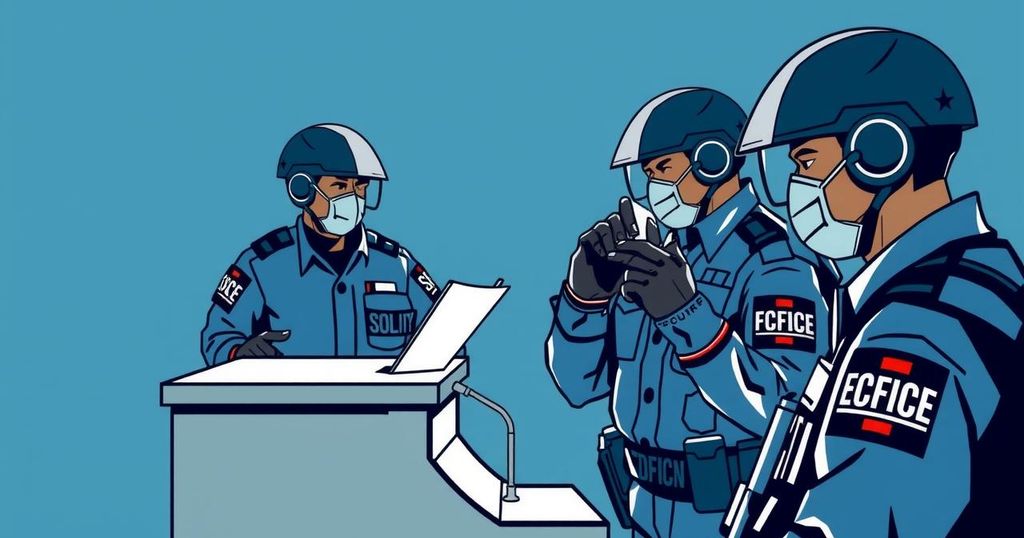U.S. Intelligence Warns of Likely Insider Threats During Upcoming Elections

Intelligence reports indicate that insider threats are likely to jeopardize the fairness of the U.S. elections as election deniers infiltrate electoral systems. The Colorado Information Analysis Center has flagged various behaviors that may signify these threats, which are compounded by hostility towards election workers and potential cyber threats. This landscape reflects heightened risks to the integrity of democratic processes as the 2024 elections approach.
U.S. intelligence has issued a warning regarding the likelihood of insider threats to election integrity as election centers prepare for the upcoming 2024 elections. This alert, detailed in a memo reviewed by WIRED, emphasizes that insider threats could severely undermine the fairness and transparency of the electoral process. The memo refers to the Department of Homeland Security’s definition of an insider threat, involving individuals who may exploit their authorized access to cause harm, either intentionally or unintentionally. The bulletin, compiled by the Colorado Information Analysis Center (CIAC), indicates an elevated threat landscape heading into the elections, especially with many election deniers positioning themselves within electoral systems throughout the country. Kevin Klein, Director of Colorado’s Division of Homeland Security and Emergencies Management, remarked that insider threats present greater concerns than in previous elections. The intelligence report identifies various “red flag” behaviors indicating potential insider threats, including attempts to tamper with ballots or grant unauthorized access to voting facilities. The rise of conspiracy-driven groups aimed at placing loyalists within election systems is a notable factor contributing to this heightened level of threat. Reports have indicated that numerous pro-Trump election deniers hold influential positions in battleground counties, fueled by organizations advocating for increased election oversight. Furthermore, election workers have faced unprecedented scrutiny and hostility, leading to a significant turnover rate among local election officials. For instance, the Justice Department’s establishment of the “Election Threats Task Force” in response to the volume of threats underscores the seriousness of the situation. Intelligence assessments predict that domestic extremists pose serious risks to election infrastructure, compounded by the activity of cybercriminals targeting these systems. A recent intelligence memo suggests that cyber attacks by criminals are likely to be more disruptive than threats from foreign adversaries. In summary, the combination of insider threats, domestic extremism, and cyber risks creates a complex and dangerous environment as the U.S. gears up for its democratic elections.
The U.S. election system is increasingly vulnerable to various threats, particularly from insider actors who may manipulate or sabotage the democratic process. Following the events of January 6, 2021, there has been a pronounced concern over the infiltration of election administration by individuals aligned with extremist views, particularly among those promoting unfounded allegations of election fraud. Intelligence assessments are being made in light of these developments, reflecting the reality that the operational integrity of elections might be compromised from within. Awareness and training concerning potential insider threats have thus become paramount, as officials aim to safeguard electoral processes against both physical disruptions and cyber intrusions.
The looming potential for insider threats during the upcoming U.S. elections underscores a critical challenge for electoral integrity. The intertwining realities of extremist infiltration and cybercriminal activity necessitate vigilant monitoring and proactive measures to ensure that election processes remain secure. As election centers prepare, the collaboration between officials, intelligence agencies, and law enforcement will be crucial in countering these evolving threats to democracy.
Original Source: www.wired.com








